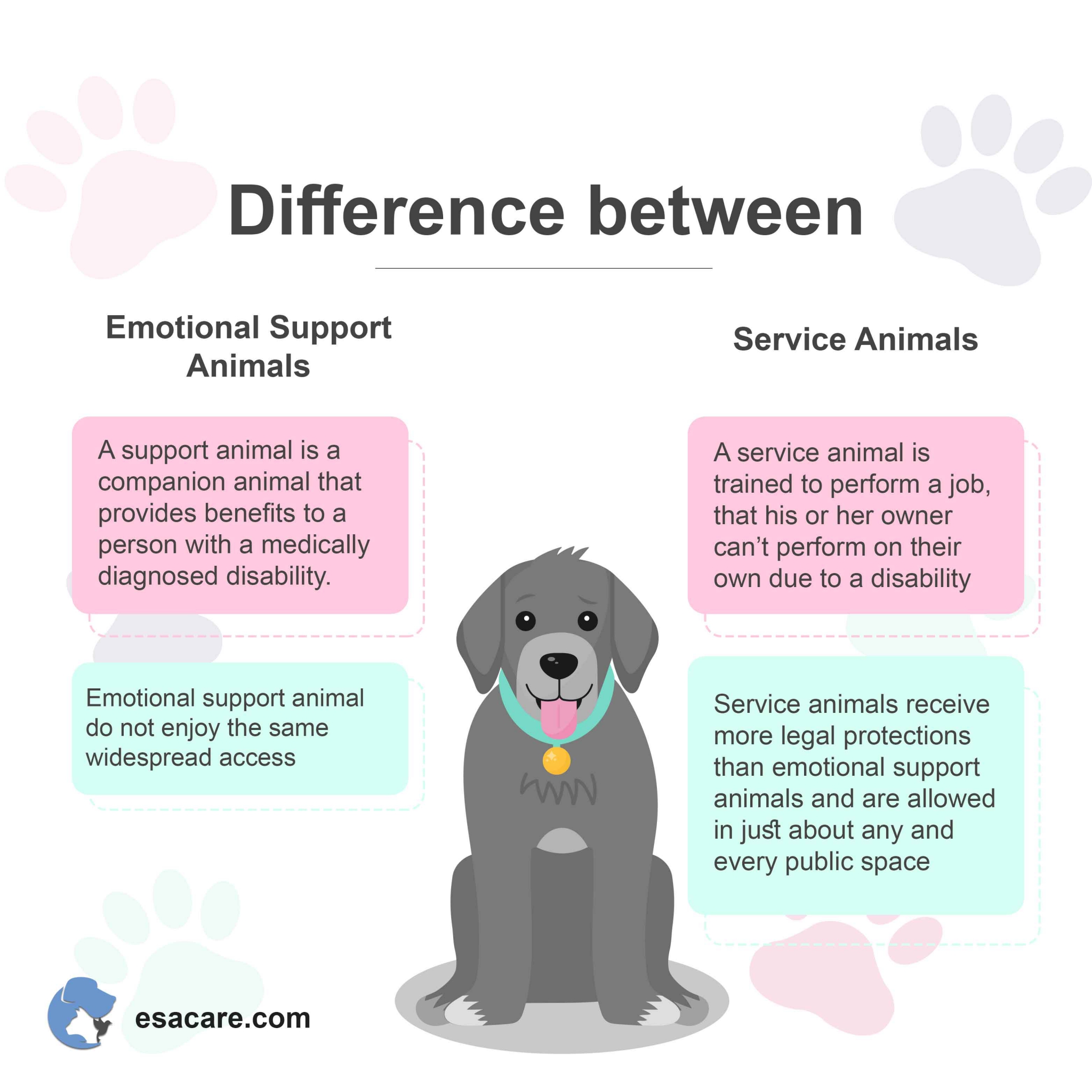Benefits of an Emotional Support Animal (ESA)
An emotional support animal (ESA) is a companion animal that provides therapeutic benefits to individuals with mental or emotional disabilities. These animals offer unconditional love, support, and comfort, helping their owners cope with various challenges and improve their overall well-being. In this article, we will explore the numerous benefits of having an ESA and how they can positively impact the lives of individuals in need.
Emotional Support and Companionship
One of the key benefits of having an ESA is the emotional support and companionship they provide. These animals offer unwavering love and affection, which can be particularly beneficial for individuals experiencing loneliness, depression, anxiety, or other mental health conditions. The presence of an ESA can help alleviate feelings of isolation and provide a sense of belonging.
Stress and Anxiety Reduction
ESAs have been proven to reduce stress and anxiety levels in their owners. The simple act of petting or cuddling with an ESA can release endorphins, the “feel-good” hormones, which help lower stress hormones such as cortisol. This natural stress relief can have a profound impact on individuals struggling with anxiety disorders, PTSD, or high levels of stress.
Improved Mental Health
For individuals with mental health conditions, such as depression or bipolar disorder, having an ESA can contribute to improved mental health. These animals offer a sense of purpose and responsibility, providing a daily routine and a reason to engage in physical activity. ESAs can also help individuals establish a sense of structure and stability in their lives, which is crucial for managing mental health conditions.
Increased Socialization
ESAs can act as social catalysts, helping their owners connect with others and engage in social activities. Taking an ESA for a walk or visiting a pet-friendly park can lead to interactions with other pet owners, providing opportunities for socialization and reducing feelings of social isolation. This increased social interaction can have a positive impact on an individual’s mental well-being and overall quality of life.
Physical Health Benefits
Beyond the mental health benefits, ESA’s can also contribute to improved physical health. Regular exercise, such as walking or playing with an ESA, can help individuals maintain a healthy lifestyle and reduce the risk of certain health conditions. Additionally, the presence of an ESA has been shown to lower blood pressure and heart rate, promoting cardiovascular health.
Legal Protections
Individuals with an ESA are entitled to certain legal protections. Under the Fair Housing Act (FHA), individuals with disabilities are allowed to keep an ESA in their housing, even if there are pet restrictions. Additionally, the Air Carrier Access Act (ACAA) allows individuals to travel with their ESA in the cabin of an aircraft, provided they have the necessary documentation. These legal protections ensure that individuals can have their ESA by their side, offering comfort and support wherever they go.

Emotional support animals provide invaluable benefits to individuals with mental or emotional disabilities. From offering emotional support and companionship to reducing stress and anxiety levels, these animals play a crucial role in enhancing the overall well-being of their owners. Additionally, the legal protections afforded to individuals with an ESA ensure that they can experience these benefits in various aspects of their lives. If you are considering getting an ESA, it is important to consult with a healthcare professional and understand the responsibilities and requirements associated with owning an ESA.
Frequently Asked Questions about the Benefits of an Emotional Support Animal (ESA)
1. What is an Emotional Support Animal (ESA)?
An Emotional Support Animal (ESA) is a companion animal that provides therapeutic benefits to individuals with emotional or mental health conditions.
2. What are the benefits of having an ESA?
Having an ESA can provide various benefits such as reducing anxiety, alleviating symptoms of depression, providing emotional support, and improving overall well-being.
3. How can an ESA help with anxiety?
An ESA can help with anxiety by providing a sense of comfort, companionship, and emotional support. They can help reduce anxiety symptoms and provide a calming presence during stressful situations.
4. Are there any legal protections for ESAs?
Yes, under the Fair Housing Act (FHA) in the United States, individuals with ESAs are protected against housing discrimination. Additionally, ESAs are allowed to accompany their owners on flights under the Air Carrier Access Act (ACAA).
5. Do I need a special certification or registration for my ESA?
While there is no official certification or registration for ESAs, you may need an ESA letter from a licensed mental health professional, stating that you have a qualifying condition and that an ESA would be beneficial for your well-being.
6. Can any animal be an ESA?
Generally, any domesticated animal can be an ESA, but the most common ones are dogs and cats. However, the specific regulations may vary depending on the country or state.
7. Can an ESA be taken to any public place?
No, ESAs are not granted the same public access rights as service animals. They are usually allowed in housing and on flights, but restrictions may apply to other public places such as restaurants, stores, or workplaces.
8. Can an ESA be beneficial for children?
Yes, an ESA can provide emotional support and comfort to children with emotional or mental health conditions. However, it is important to consult with a mental health professional to determine if an ESA would be appropriate for your child.
9. Can an ESA help with post-traumatic stress disorder (PTSD)?
Yes, ESAs can be particularly beneficial for individuals with PTSD. They can help reduce anxiety and provide a sense of security, helping individuals cope with the symptoms of PTSD.
10. Can an ESA be prescribed as a replacement for medication or therapy?
No, an ESA is not a substitute for medication or therapy. It is meant to complement existing treatments and provide additional emotional support. Always consult with a healthcare professional regarding your treatment plan.




